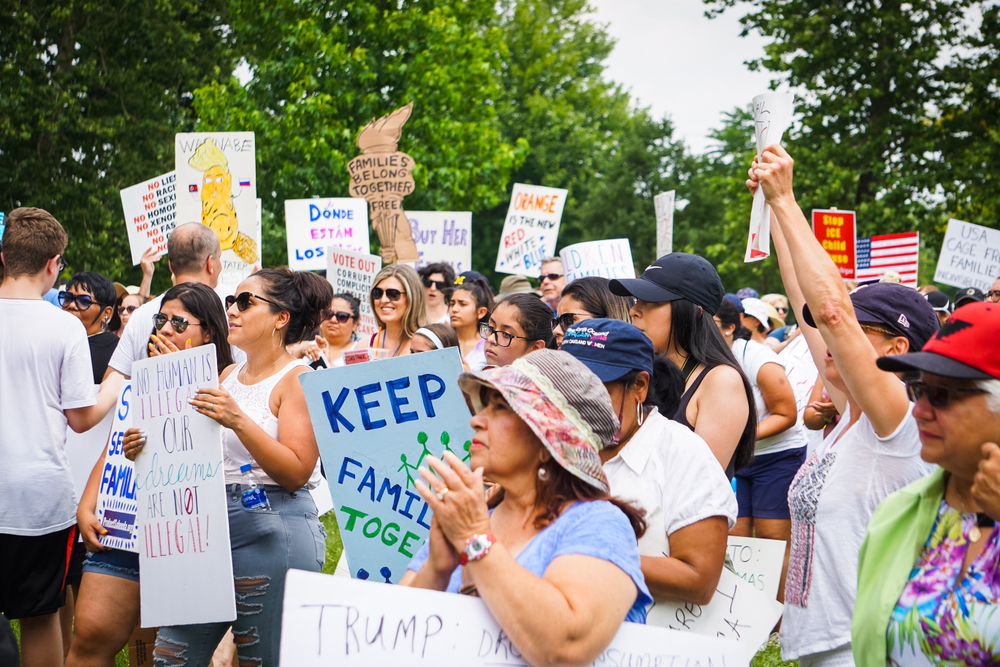In a quiet courtroom, a federal immigration judge calls the next case. A child, sometimes only five years old, walks to the front, often without a parent, lawyer, or interpreter. This scene plays out daily in the U.S. immigration court system, where thousands of unaccompanied minors face legal proceedings alone.
Many of these children crossed borders under dangerous conditions. Some fled violence or abuse, while others hoped to reunite with family. Instead of finding safety, they enter a complex legal system built for adults. Unlike criminal court, immigration hearings don’t guarantee legal counsel, even for children. As a result, many minors must represent themselves without understanding their rights or the stakes involved.
Shelters and legal nonprofits try to help by offering animated videos and brief explanations. However, child advocates argue these efforts cannot replace actual legal representation. They warn that many kids are being railroaded through a fast-moving process that values efficiency over justice. This article explores how the immigration court system handles unaccompanied minors, the consequences of its current approach, and what reforms experts say are urgently needed.
A Legal System Too Complex for Kids
To prepare children for court, some shelters rely on animated videos. One features a cartoon cat who explains courtroom procedures. Another shows a superhero lawyer who helps a scared child talk to a judge. These tools aim to reduce fear and introduce legal basics. Yet experts say they fall short. As one child welfare advocate noted, teaching courtroom rules through cartoons is not the same as equipping a child to survive a legal process most adults find confusing.
Many children do not speak English and struggle to understand legal concepts. Some have endured trauma, making it even harder to focus or trust adults in authority. When asked to explain why they left their home country or whether they fear returning, most children cannot respond in a meaningful way. Their silence is not a refusal, it reflects their confusion and fear.
The situation becomes worse when children face court without legal representation. Immigration court does not provide public defenders, even for minors. Children must find legal help on their own, which many cannot do. Thousands of kids walk into deportation court alone. Judges ask them to describe their journey, explain their fears, and prove they qualify for protection. Without guidance, most don’t know what to say, and many face deportation as a result.
Read More: Mom Shocked to Learn Daycare Worker Breastfed Her Son Without Permission, And It’s Legal
Research consistently shows that children with legal representation are far more likely to remain in the United States. Yet a shortage of immigration attorneys and limited nonprofit resources means most children never get that chance. In these cases, the immigration legal system expects them to defend themselves in a language they do not speak and a process they do not understand.
Weak Protections and Quick Judgments
The 1997 Flores Settlement Agreement was created to protect minors in immigration custody. It requires that the government hold children in safe conditions and release them quickly to family or guardians. It also ensures access to a hearing. However, Flores does not guarantee a lawyer for each child. That critical gap leaves minors vulnerable as they move through immigration court without an advocate.
Many children wait weeks in overcrowded shelters before they even see a judge. During that time, emotional support is minimal and educational services are limited. When children finally reach the courtroom, judges often move cases along quickly. Advocates have begun to describe the process as a legal conveyor belt. Children, treated more like case files than individuals, can be deported in minutes, sometimes without fully understanding what happened.
In one recent example, a six-year-old boy with no lawyer and no English fluency stood in front of a judge. He remained silent when asked if he understood the charges. The judge proceeded with the hearing and issued a removal order. That child was sent back to the country he had fled, with no clear understanding of why or how.
Unfortunately, this is not an isolated incident. Across courtrooms for minors, stories like this continue to emerge. Judges under pressure to move through large caseloads often have little time to pause or explain. The consequences for the child, however, can last a lifetime.
Reform Efforts and Roadblocks
In response to growing concern, advocacy organizations and some lawmakers have pushed for change. They argue that children in immigration court deserve the same legal protections available in other court systems. These advocates call for guaranteed legal representation, trained child advocates, and more funding for immigration legal aid.

Other proposals go further. Some recommend assigning independent legal guardians to minors. Others support family-based case management programs that would help children navigate the system more humanely. These ideas would shift the current focus from enforcement to fairness, ensuring that each child has a chance to tell their story and understand their options.
Despite these efforts, resistance remains. Opponents argue that providing lawyers for every child would burden the court system or increase immigration. Even so, public sentiment continues to shift. As more people learn about toddlers facing court alone, support for reform grows stronger.
A Legal System That Fails the Most Vulnerable
Imagine a five-year-old standing in front of a judge in immigration court. They have no parent to guide them and no lawyer to explain their rights. This is not a worst-case scenario, it is happening today across the United States.
Cartoons and storybooks may ease a child’s fear briefly, but they cannot defend a child’s legal rights. Without systemic change, the immigration legal system will continue to fail the very children it should protect. These kids didn’t ask to be in court. They deserve more than a rushed hearing and a quick deportation order.
If the U.S. is to uphold its commitment to justice and human rights, then it must act now. Every child facing immigration proceedings deserves legal support, a fair hearing, and the opportunity to be heard. Until then, the youngest and most vulnerable will remain lost in a system they never stood a chance of navigating.
Read More: 5 Countries Making It Harder for Americans to Live and Work Abroad

